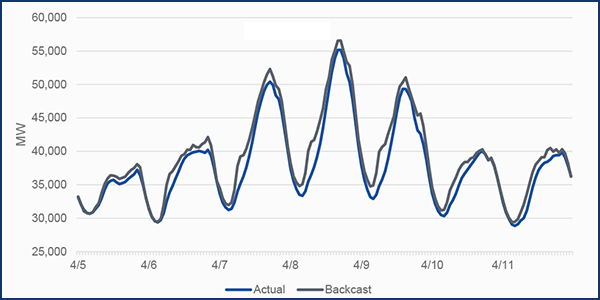ERCOT’s Board of Directors gathered briefly in a conference call April 14 to discuss the grid operator’s response to the COVID-19 pandemic.
CEO Bill Magness, acknowledging the “unusual meeting format,” detailed ERCOT’s plans and actions taken since March 3, when the Texas grid operator first limited employee travel and directed that all meetings be conducted via webinars or teleconferences. Staff were directed to work from home on March 18 if they did not have on-site responsibilities, an order that extends through May 3.
He thanked employees and contractors for staying in regular contact with ERCOT stakeholders and “working to ensure our response is coordinated with theirs.”
“In the best of times, ERCOT employees are good problem solvers and devoted to their mission,” Magness said. “Those characteristics have proven extremely important during these difficult times.”
ERCOT will continue to develop contingency plans to protect the health of on-site workers “before conditions become closer to normal,” Magness said. He said it continues to solicit advice and guidance from public health and regulatory authorities, its U.S. and Canadian grid operator counterparts and the Texas electric industry.
“There is great uncertainty about many things in today’s world, but I feel confident the Texas summer will still be hot,” he said.
ERCOT said in March that it foresees record electric usage and tight reserves this summer, but that it has sufficient capacity on hand. It plans to release a final summer resource adequacy report and a capacity report in May. (See ERCOT Sees Summer Repeat: Record Peak, Tight Reserves.)
COVID-19 has begun to have a larger effect on the grid operator’s load patterns, according to its most recent analysis. Daily peaks were consistently lower during the week beginning April 5, dropping about 2% despite several hot days. Energy usage was down 4 to 5% during the week.
Virus’ Effects Begin to Affect Load Patterns
ERCOT on Thursday told the Texas Public Utility Commission that it has entered into loan agreements with Texas’ transmission and distribution utilities — Oncor, CenterPoint Energy, AEP Texas and Texas-New Mexico Power — to fully fund a $15 million COVID-19 relief program for residential customers having difficulty paying their bills (50664).
The PUC in March ordered the fund’s creation. It applies to customers within ERCOT’s footprint.
Board Approves 4 Change Requests
The board unanimously approved three Nodal Protocol revision requests (NPRR) and a single change to the Planning Guide (PGRR):
-
-
- NPRR953: defines “relay loadability rating” to align with NERC’s definition changes, which adds a requirement to include protection system limitations for operational planning analysis and real-time assessments. The changes also support ERCOT housing and monitoring the relay loadability rating in Energy Management System applications.
- NPRR997: requires an entity controlling a primarily natural gas-fired generation resource to supply ERCOT with a declaration contained in the summer weather preparedness form. The declaration should state that the resource entity or the resource entity’s qualified scheduling entity has made a written effort to communicate with the operator of each gas pipeline directly connected to the entity’s generation resource to coordinate any planned pipeline outages to maximize the resource’s availability during the summer peak load season.
- NPRR998: establishes a requirement that ERCOT post all emergency response service deployments and recalls to the Market Information System’s public area.
- PGRR075: requires resource entities and interconnecting entities to provide model-quality test results that demonstrate appropriate performance for submitted dynamic models. Also clarifies that dynamic model data shall be provided using the appropriate dynamic model template; raises awareness of requirements associated with user-written dynamic models; and makes various miscellaneous language updates and corrections, including the elimination of a section superseded by NERC Reliability Standard PRC-002-2 and a Nodal Operating Guide section on phasor measurement recording equipment.
-
— Tom Kleckner




